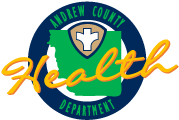THE PRESIDENT'S CORONAVIRUS GUIDELINES FOR AMERICA
30 DAYS TO SLOW THE SPREAD
Listen to and follow the directions of your STATE AND LOCAL AUTHORITIES.
IF YOU FEEL SICK, stay home. Do not go to work. Contact your medical provider.
IF YOUR CHILDREN ARE SICK, keep them at home Do not send them to school. Contact your medical provider.
IF SOMEONE IN YOUR HOUSEHOLD HAS TESTED POSITIVE for coronavirus, keep the entire household at home. Do not go to work. Do not go to school. Contact your medical provider.
IF YOUR ARE AN OLDER PERSON, stay home and away from other people.
IF YOU ARE A PERSON WITH A SERIOUS UNDERLYING HEALTH CONDITION that can put you at increased risk (for example, a condition that impairs your lung or heart function or weakens your immune system), stay home and away from other people.
DO YOUR PART TO SLOW THE SPREAD OF THE CORONAVIRUS
Evin if you are young or otherwise healthy, you are at risk and your activities can increase the risk for others. It is critical that you do your part to slow the spread of the coronavirus.
Work or engage in schooling FROM HOME whenever possible.
IF YOU WORK IN A CRITICAL INFRASTRUCTURE INDUSTRY, as defined by the Department of Homeland Security, such as healthcare services and pharmaceutical and food supply, you have a special responsibility to maintain your normal work schedule. You and your employers should follow CC guidance to protect your health at work.
AVOID SOCIAL GATHERING in groups of more than 10 people.
Avoid eating or drinking at bars, restaurants, and food courts - USE DRIVE-THRU, PICKUP, OR DELIVERY OPTIONS.
AVOID DISCRETIONARY TRAVEL, shopping, and social visits.
DO NOT VISIT nursing homes or retirement or long-term care facilities unless to provide critical assistance.
PRACTICE GOOD HYGIENE:
- Wash your hands, especially after touching any frequently used item or surface.
- Avoid touching your face.
- Sneeze or cough into a tissue, or the inside of your elbow.
- Disinfect frequently used items and surfaces as much as possible.
School operations can accelerate the spread of the coronavirus. Governors of states with evidence of community transmission should close schools in affected and surrounding areas. Governors should close schools in communities that are near areas of community transmission, even if those areas are in neighboring states. In addition, state and local officials should close schools where coronavirus has been identified in the population associated with the school. States and localities that close schools need to address childcare needs of crtical responders, as well as nutritional needs of children.
Older people are particularly at risk from the coronavirus. All states should follow Federal guidance and halt social visits to nursing homes and retirement and long-term care facilities.
In states with evidence of community transmission, bars, restaurants, food courts, gyms, and other indoor and outdoor venues where groups of people congregate should be closed.





